Hero status for Ndlovu
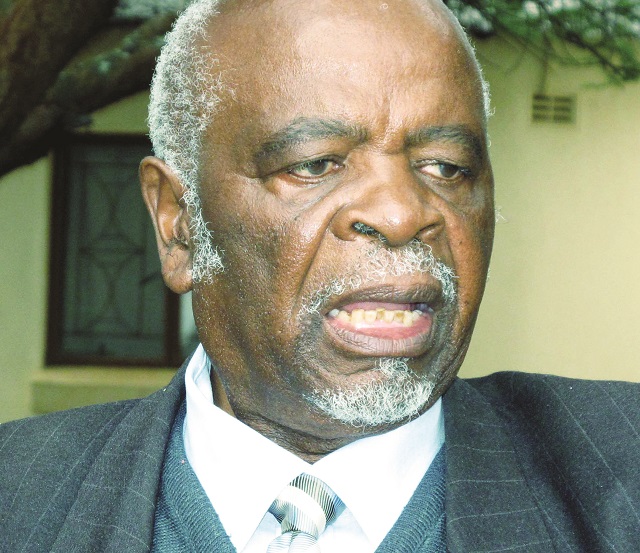
Auxilia Katongomara, Chronicle Reporter
THE late veteran nationalist Cde Naison Khutshwekhaya Ndlovu has been declared a national hero and is expected to be buried at the National Heroes’ Acre in Harare on Saturday.
A former Zanu-PF Politburo member and Deputy Senate president, Cde Ndlovu (86) passed away in Bulawayo on Monday after a long battle with prostate cancer.
Politburo member Cde Joshua Malinga yesterday told mourners gathered at the late nationalist’s Luveve suburb home that President Mugabe had declared him a national hero.
“I have a short message from the President to tell you that ubaba uNK Ndlovu has been declared a national hero and would be laid to rest on Saturday. We all know him, imisebenzi yakhe siyayazi. He was one of the few people who were very close to the President. We would all go to him to seek advice, he was a fountain of knowledge,” said Cde Malinga.
He appealed to the people of Bulawayo to travel to Harare in their numbers for the national hero’s send-off.
Cde Malinga, said he was disappointed that Cde Ndlovu had died before the documentation of his historical knowledge and experiences.
“Let’s learn to write a book, as it is ubaba has left with his knowledge, he had a rich history of our country as well as experiences and sadly it’s not documented,” said Cde Malinga.
“As Bulawayo and the nation we are pained by the departure of Cde Ndlovu. To the Ndlovu family, we are with you , the nation is with you in mourning the veteran leader.”
The Minister of State for Bulawayo Provincial Affairs, Cde Nomthandazo Eunice Moyo said Cde Ndlovu’s death had closed the chapter on Zapu founding fathers as he was the last surviving among them.
“We were with him in Zambia. He was a father figure to us, he always had a diplomatic way of handling issues or reprimanding us the juniors,” said Cde Moyo.
“Presently there is no one left ku Zapu among the founding fathers and leaders, it’s only those that followed in the footsteps of the veteran leaders like obaba uNkomo, Silundika and Chinamano that are still surviving. From that team we have closed the page following the death of Cde Ndlovu. That’s how important his role was.”
Family spokesperson and brother to the late Cde Ndlovu, Vulindlela thanked the Government for according his sibling the hero status.
Present during the announcement of Cde Ndlovu’s hero status were Politburo member, Cde Absalom Sikhosana, Zanu-PF Bulawayo provincial chairman Cde Dennis Ndlovu who is also a former Mayor of Bulawayo, Bulawayo provincial secretary for security Cde George Mlala, Bulawayo provincial deputy chair Cde Simon Khabo.
Zanu-PF legislators, Cdes Killian Sibanda, Joseph Tshuma and Maidei Mpala and former mayor Alderman Abednico Nyathi were also among the mourners.
Bulawayo Acting Mayor and Njube councillor Lillian Mlilo, Town Clerk Mr Christopher Dube and other senior council officials visited Cde Ndlovu’s home to pay their condolences to the family of the city’s first black mayor.
The Bulawayo United Residents’ Association (Bura) yesterday described Cde Ndlovu, the founding chairman of the association in 1962 as an “astute true leader who had the interests of the people at heart.”
Cde Ndlovu, who was the national chairman of PF-Zapu at the time of the signing of the Unity Accord in 1987, was the first black mayor of Bulawayo, assuming the post in 1981 and serving two terms.
He was the only surviving member from the PF-Zapu side involved in initial talks towards uniting PF-Zapu and Zanu.
Cde Ndlovu was born in Gwatemba, Filabusi, on October 22, 1930, and was educated at Zezani Secondary School in Beitbridge where he did Standard One and Two.
He went back to Gwatemba to finish Standard Three before proceeding to Wanezi Mission for Standard Six and later proceeded to Umzingwane Government School where he trained in leather work.
After attaining a certificate in leather work, Cde Ndlovu taught at Zezani School and Matopo Mission in 1950 and 1953 respectively before proceeding to Empandeni Mission.
His last teaching job was at Jairos Jiri Training Centre in Bulawayo from 1956 to 1965 before joining politics.
His life changed because he was continuously detained after the infamous Unilateral Declaration of Independence by Ian Douglas Smith.
Cde Ndlovu came to Bulawayo in 1956 and this is the time when the influence of the Southern Rhodesia African National Congress (SRANC) was beginning to be felt.
He met other luminaries like the late Cde Joshua Nkomo. The SRANC was strongly campaigning against the Federation of Rhodesia and Nyasaland.
The Smith regime became more brutal and many detention centres were set up at Khami, Gonakudzingwa, Marondera and other areas.
Soon after the banning of the SRANC, the National Democratic Party was formed and Cde Ndlovu was not in the leadership structures.
He became active when the NDP was banned in 1960 and succeeded by the Zimbabwe African People’s Union (Zapu) in 1961.
He was co-opted into the structures of Zapu and the party had one district in Bulawayo which he represented as a committee member.
After the banning of Zapu around 1962, the People’s Caretaker Council was formed to lead the struggle. Cde Ndlovu was very influential in the formation of the Bulawayo United Residents Association in 1962 and he was the first chairman deputised by the late Cde Sydney Malunga with Cde John Nkomo as secretary.
Cde Ndlovu remained very active after the liberation struggle, although he was not very actively involved in central Government.
He became the first black councillor for Luveve in 1981, the same year he was elected Bulawayo mayor for a two-year term.
As a councillor and mayor, Cde Ndlovu will be remembered by the people of Bulawayo for calling for sitting tenants to buy the houses they had been renting for over 40 years.
Working with the first local Government Minister, the late Cde Eddison Zvobgo, Cde Ndlovu influenced the purchase of homes.
People who had been renting homes in Mzilikazi and Makokoba since the early 1940s were given the houses on the basis that they had already paid off the money through rentals.
Council under Cde Ndlovu took advantage of the schemes that were introduced by Cde Zvobgo while many other city councils resisted them.
Under the scheme, some houses were built in Emakhandeni, Entumbane and Nkulumane and people called them the “Zvobgo houses”.
In 1985 he contested for the Insiza Parliamentary Constituency, a seat he held until June 2000 when he lost to the MDC.
He was representing one of the biggest constituencies in the country, covering Fort Rixon, Filabusi and parts of Esigodini and Gwanda.
During his term as Member of Parliament for three terms and later as Senator for the same constituency, Cde Ndlovu did a lot for the area.
When he took over in 1985, it was immediately after independence and Ian Smith’s Government had done nearly nothing to improve the lives of Zimbabweans in the constituency.
He lobbied the Government to build clinics, schools, roads and dams and to rehabilitate some irrigation schemes.
Cde Ndlovu is survived by wife Sithokozile and two children.
Mourners are gathered at number 5649 Luveve 4 suburb.
@AuxiliaK

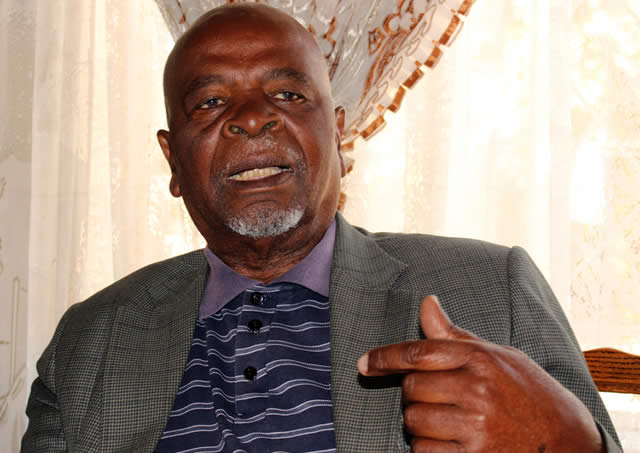
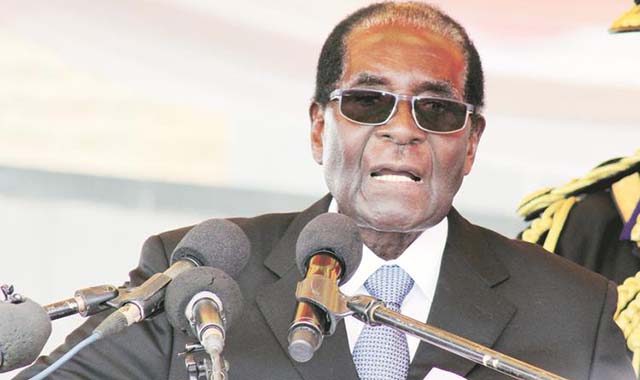

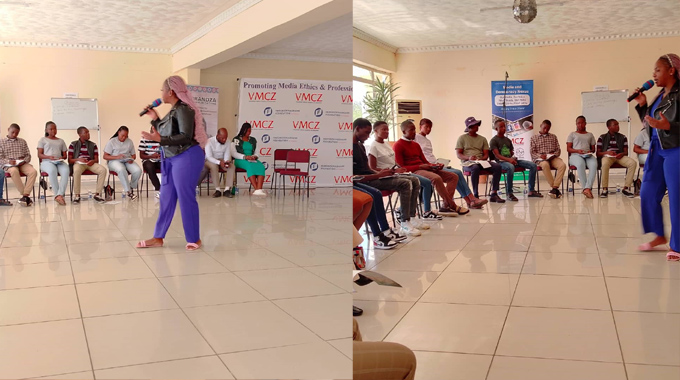
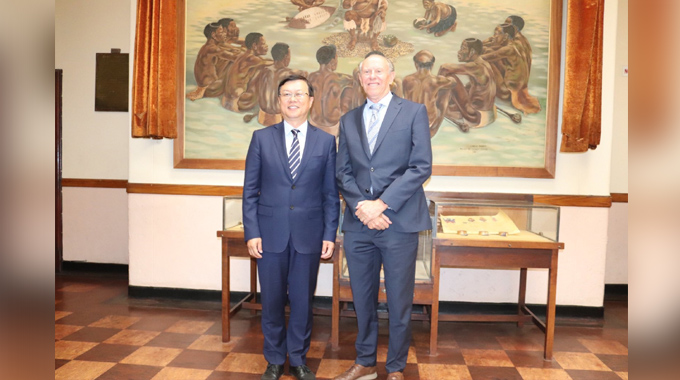






Comments